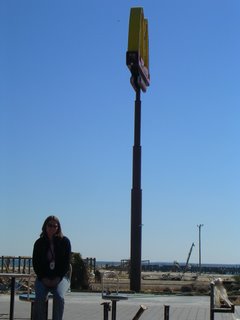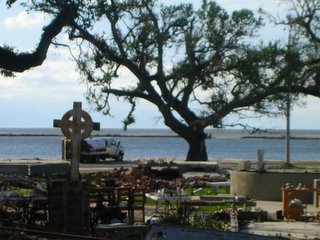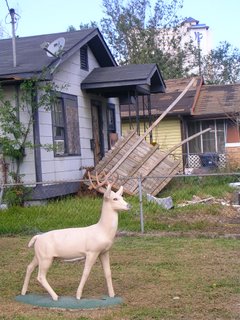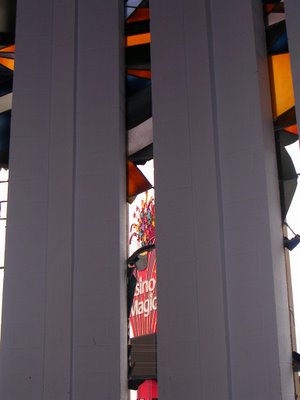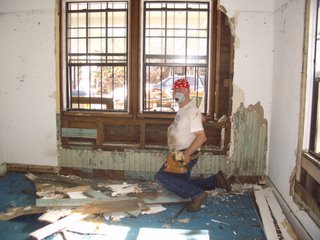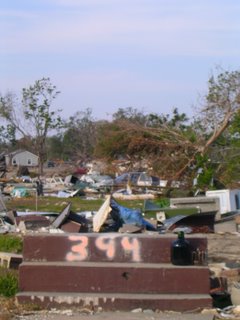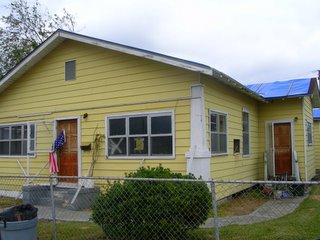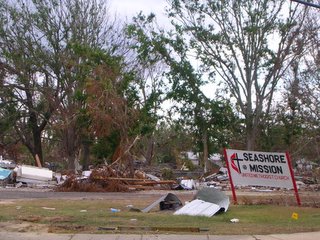How does this all work?
One thing I haven't really touched on in this blog is the process the homeowners go through to obtain help from the government and what that help looks like. This is all 2nd hand information but I'll let you in on what I know...
Homeowners typically would carry hurricane insurance but not flood insurance (flood insurance is rather expensive). Insurance companies dodged the bullet by claiming that the majority of the damage was caused by flooding due to the tidal surge (25 feet in some places) rather than the hurricane.* Any damage caused by wind would be covered after the deductible is met. So if you lost part of your roof or you had water damage due to roof failure, insurance would cover the damages. Helpful, kind of. Any damage that was due to water entering the house at the ground level would classify as flood damage and is not covered. Very few houses survived the storm without flood damage.
For people with flood damage, FEMA has offered a maximum grant to homeowners of a little over $26,000. Any hotel bills and other expenses incurred would be deducted from the total grant. Homeowners can also apply for low interest loans through the Small Business Administration. For those who qualified for assistance, they would also be able to obtain a trailer that would be placed on their property for up to 18 months. Most mortgage companies will also give leniency to those affected by the disaster but the homeowner would have to lobby the lender themselves.
Current thinking is that materials alone will cost between $20-35,000 to fix the houses up. This does not include labor. Many are hoping to do the jobs themselves or have volunteer groups come and do some of the work.
Here's the rub as of this morning. Say you've purchased your home for $40,000 15 years ago. You have paid 1/2 of the mortgage off and still owe $20,000 on the home. The storm hits and destroys most of your house. You can rebuild by investing more money in the house (potentially more than the total initial investment) or you can try and get out of the house. Conveniently, the US Congress passed a new law allowing water based casinos to set up shop on land after Katrina so property values are rising as land becomes more precious. Casinos are now offering you $200,000 for your lot. It sounds like a good deal. You are actually making quite a bit of money from the deal if your home is located in the right area of town. The major hick-up in the whole deal stems around communication. Correct information is hard to come by. Casinos and the money they represent can be rather seductive and the communication on other options is slow to come by.
Apparently, many folks are thinking that selling their land is the only option. There is a new push to let homeowners know that there is help if they do want to keep going and rebuild. Today in
In one sense, land is land...it's not eternal, it’s not people, its stuff. But there is plenty attached to that stuff.
A few weeks ago, I met a woman who was affected by the storm. She works for Bell South and lives in the house she grew up in. She was adopted when she was a child by two loving people. Her adopted mother died when she was 16 and her father passed away 2 years ago. The house was left to her and was full of mementos of the love her parents shared with her. The storm waters reached up to about 6 feet in the house, destroying all of the furnishings. She voiced a deep fear that what was left of her house, memories, symbols of love have all been destroyed and she is now alone - orphaned again.
*Note there would have been no tidal surge without the hurricane.

